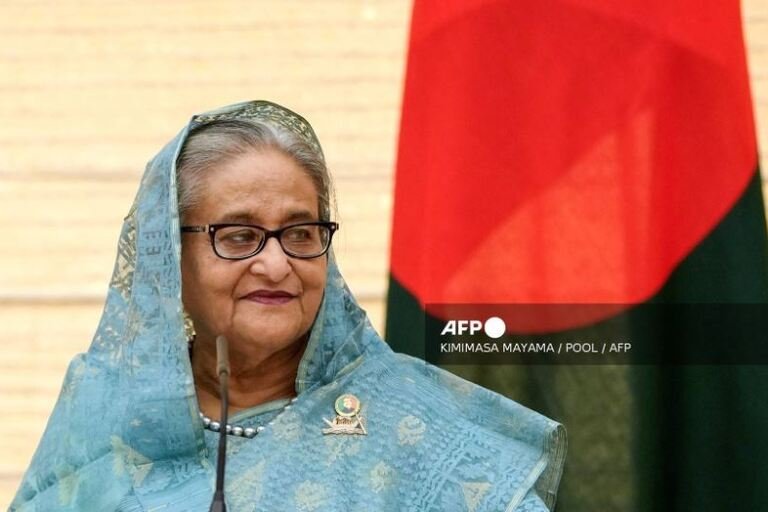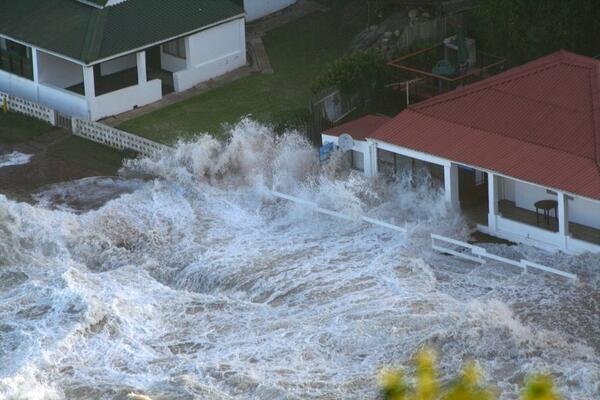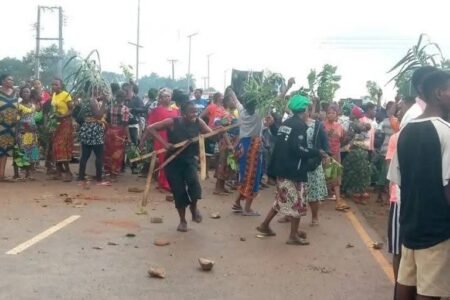Cheering protestors stormed Bangladeshi Prime Minister Sheikh Hasina’s palace on Monday after she escaped, marking the end of more than a month of deadly anti-government demonstrations.
On Monday morning, jubilant crowds waved flags in Dhaka’s streets, with some dancing on top of a tank, before hundreds crashed past the gates of Hasina’s official residence.
Bangladesh’s Channel 24 showed footage of masses running inside the enclosure and waving to the camera as they cheered.
A source close to Hasina, 76, had told AFP that she had left her palace for a “safer place.”
Waker-Uz-Zaman, Bangladesh’s army leader, will address the nation on Monday afternoon, a military official told AFP without providing any information.
Before the demonstrators entered the facility, Hasina’s son encouraged the country’s security personnel to prevent a takeover of her 15-year leadership.
“Your duty is to keep our people and our country safe and uphold the constitution.
“It means don’t allow any unelected government to come in power for one minute; it is your duty,” her son, United States-based Sajeeb Joy, said in a Facebook post.
Security forces have backed Hasina’s government throughout the turmoil, which began last month over civil service job quotas and later grew into broader calls for her resignation.
However, the demonstrators disobeyed curfews and used deadly force.
On Sunday, 94 people were killed, including 14 police officers, making it the worst day of the uprising.
Protesters and government supporters across the country clashed with sticks and knives, prompting security forces to open fire.
The day’s violence brought the total number of persons killed since protests began in early July to at least 300, according to an AFP tally of police, government officials, and hospital physicians.
Protesters and government supporters across the country clashed with sticks and knives, prompting security forces to open fire.
The day’s violence brought the total number of persons killed since protests began in early July to at least 300, according to an AFP tally of police, government officials, and hospital physicians.
Waker told commanders on Saturday that the military has “always stood by the people,” according to an official statement.
Following major political upheaval in January 2007, the military proclaimed a state of emergency and appointed a two-year military-backed caretaker government.
Hasina has controlled Bangladesh since 2009, and she won her fourth consecutive election in January despite facing no credible opposition.
Rights groups accuse her government of exploiting state institutions to consolidate power and suppress dissent, including the unlawful assassination of opposition activists.
Protests erupted over the restoration of a quota system that reserved more than half of all government employment for specific groups.
Despite the fact that Bangladesh’s top court reduced the scope of the scheme, demonstrations erupted.
On Monday morning, soldiers and police with armoured vehicles in Dhaka closed approaches to Hasina’s office with barbed wire, but large masses stormed the streets, knocking down barriers.
The Business Standard daily stated that up to 400,000 demonstrators were on the streets, although this figure was impossible to verify.











